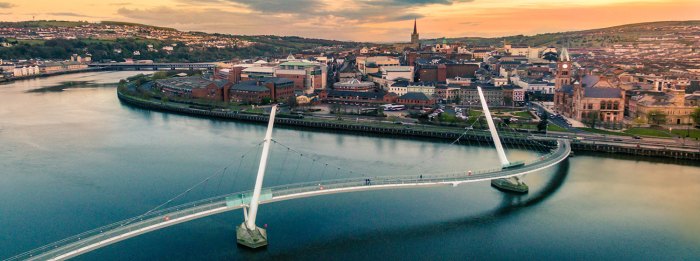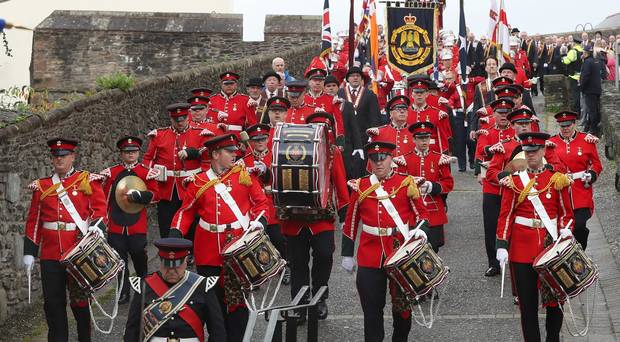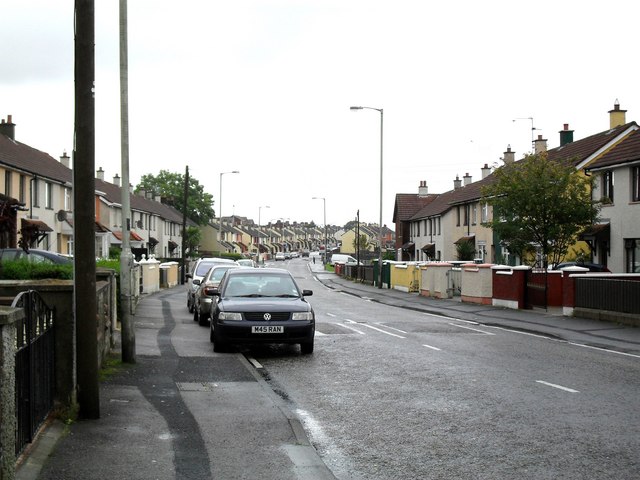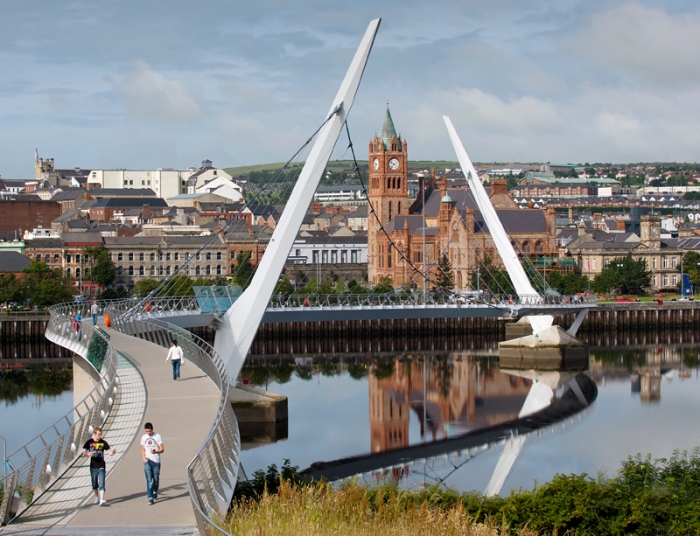I was in the city centre of Derry on Saturday 10th August from just before 9am until after 5pm after the bands had dispersed and supporters either went home or to continue the celebration in the Memorial Hall on Society Street. I wanted to make that clear at the beginning of this piece, given the vast majority of comment about Saturday came from people who were not there.
2019 has to be a turning point in the relationship between the Apprentice Boys and the residents of the adjacent Bogside. I remember the ‘bad old days’ when the march meant violence, no questions asked. Since the mid 1990’s dialogue took place between the ‘Bogside Residents Group’ and the General Committee of the Apprentice Boys which laid the foundations for peaceful marches and some form of normalising of events including loyal orders.
I want to be crystal clear about this – from the first tour of the City Walls at 9am by the local parent clubs of ABOD, their bands and members conducted themselves as one would expect from a group of people who have great pride in this City and its history. Watching the bands and brethren snake their way along the 400 year old ramparts was to witness a feat of discipline and calm.
The next set piece of the day at the Diamond War Memorial mirrored that calm. Respectfully, members bowed their heads to remember those who fell in both world wars. Here’s where the problem starts.
At the ‘Hands Across the Divide’ statue facing into Craigavon Bridge, the Relief Pageant was later underway. A real feat of street theatre with musket fire and carefully practised dialogue to boot. This is where I noticed two things – 1. alcohol had made an appearance, much, it would have seemed, to the annoyance of older brethren whose scowls were clear to see; and 2. not one local politician was to be seen (other than those in the parade).
These two factors cannot be understated.
During the first full parade through the city centre following the pageant, observers lined the streets on foot and on seats. Whilst outside the Richmond Centre at around 1pm, I noticed a man dressed in grey attempting to cross the pedestrian crossing (whose lights were green) when he was accosted by a bandsman with what looked like an umbrella and was back on the pavement in a flash, soon to be apprehended by police (9 officers) and taken away. The bandsman was not spoken to by officers. This was caught on camera by a local journalist and by the many body cameras of ABOD stewards.
Soon after, I was half way down Shipquay Street observing a protest by Saoradh. No alcohol here, and one local politician (E McCann) showed up for a total of about three minutes.
During this, it was easy to observe at the top of the street a number of police officers flanking a band navigating around the Diamond. It was clear something was wrong. After a quick bite to eat, the return parade of the parent clubs was yet to come.
Masses of police officers flanked the Diamond area, leftover from the protest with their many forms of video apparatus. A number of people not disposed to the march had been peppered throughout the crowds adjacent to Austins, observing. Shocking for me was the boom of the first band over Ferryquay street to the tune of ‘The Billy Boys’.
Any Nationalist worth their salt knows this is no neutral tune. A group of revellers across the street from where I was standing (but by no means all) were more than happy to hear this song being played and made that very clear with calls of – and I quote: “hope you like that you fenian b*stards”. The police officer three feet from me with one of the many forms of video recording equipment had this pointed at the ground. No doubt a breach of the peace was taking place.
This was clear inconsistency in the police operation. Earlier in the day, a man was spoken to by police and asked to leave the area for ‘giving the finger in the street’. This inconsistency formed part of my complaint to the Police Ombudsman.
Now that we have the chronology in order, the issues. Throughout the entire day, I had seen three elected representatives (who weren’t on the march itself). Two DUP councillors, one I met in the Fountain and one after the main parade who was acting as a steward, and one PBP Cllr who looked to be seeking to talk to Saoradh members at their protest for a short time. Not one Nationalist representative was to be seen the entire day. This is becoming all too frequent. It seems the entire Nationalist political populace inevitably see more value in waiting until the press calls the next day. Leadership on the ground is needed during the summer more in these last few years than since I was a boy.
This may be because the ‘agreement’ in place with the ABOD and ‘Bogside Residents Group’. You’ll notice I continue to place that groups name in apostrophe’s. Well the truth is, its not a residents group at all. It was created by Sinn Fein in the 90’s and utilised as a protest group by them for many years. To this day outside of its spokesperson, I am not aware of any meetings it has held, who its committee is or when they were elected (and I still live in the Bogside).
This lack of leadership on the ground and the idea that a cosy relationship has been formed despite the obvious growing anger about the Clyde Valley flute band – is a recipe for disaster. Nationalist representatives did what they do best – came to the party late, calling for meetings and issuing condemnation whilst the ABOD and the DUP circled the wagons about the ins and outs of the provocative nature of the bands attendance.
Let’s examine this. The band was invited by the General Committee of the Apprentice Boys of Derry. They knew the band was named after the ship that landed arms for the UVF at Larne, and that they nicknamed themselves ‘the Gunrunners’. Talk of an ‘agreement’ between police and the ABOD about provocative symbols etc is being run up the PSNI flagpole (and SF MP for Foyle who said a papertrail exists) but has been rubbished by the Governor of the Apprentice Boys.
A video of the police remonstrating with bandsmen of the Clyde Valley has emerged. Take that in – police negotiating with a band. For a senior officer in the PSNI to decide that the band could continue to march but to flank them with police officers was lunacy. It was never going to be seen other than a band getting their way and protected by police.
A show was put on with officers stopping the bands bus on the way home and cautioning three members – despite it being made clear that those members did not give their personal details. Leave aside the obvious provocative nature of the bands’ uniforms, the fact that police allowed the band to take part in the procession boggles the mind.
The anger from Saturday, either feigned or otherwise, has led to three nights of disorder in and around the Bogside. A group of what seems to me to be young people who likely came from the Fountain estate to mass at the Memorial Hall last night, and we are looking down the barrel of a bonfire on 15th August that has in the past been used as cover for orchestrated violence.
Couple all of this with the problems in the New Lodge and we are looking at a serious problem when our summers could just as easily revert back to those we saw in the 1990’s. Nationalists need to get their act together – engage with your own communities and take their views into account before engaging with the Apprentice Boys. The agreement that has been in place needs to ensure confidence that this year isn’t repeated. If it doesn’t, we should not be surprised if violence sadly follows.










